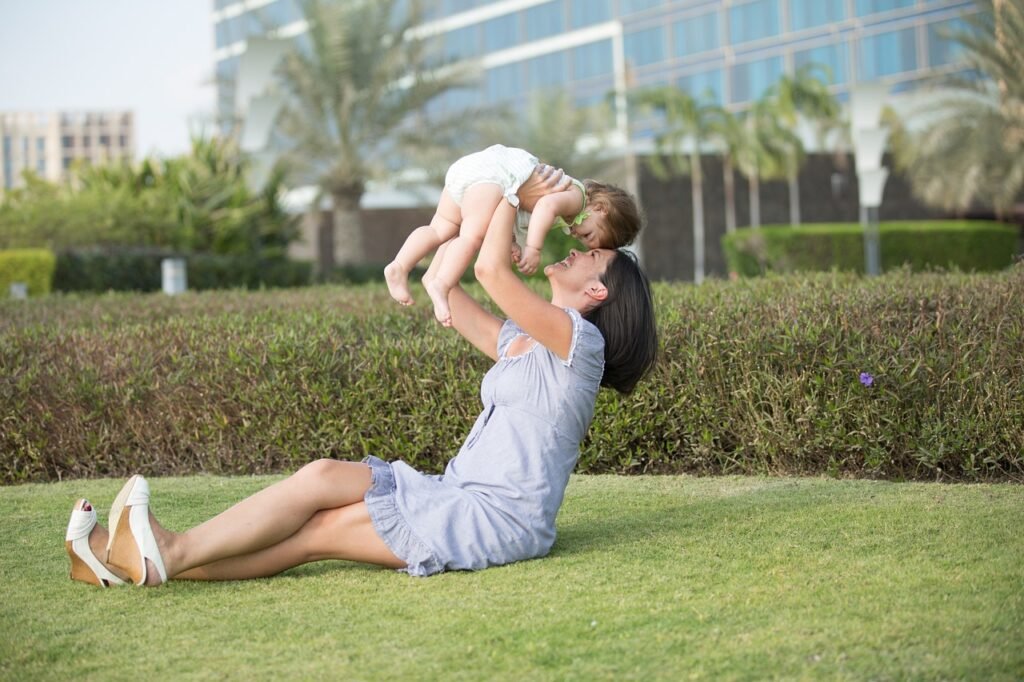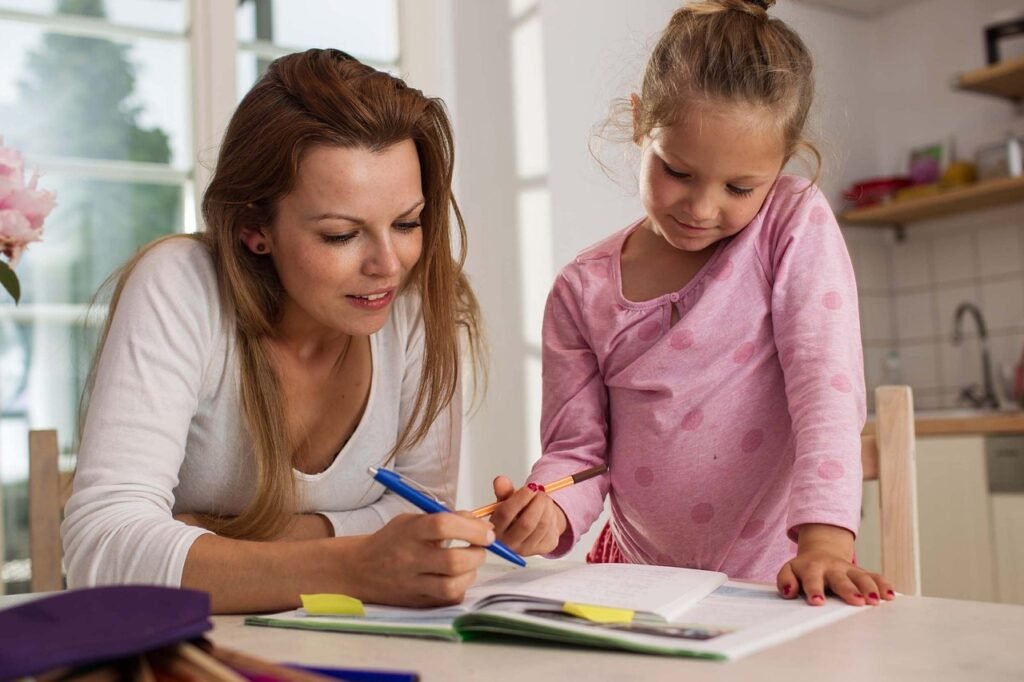Parenting Through Humor and Playfulness
Parenting is a challenging and rewarding journey that requires a balance of love, guidance, and discipline. While it’s important to set boundaries and teach life skills, incorporating humor and playfulness into your parenting style can make the experience more enjoyable for both you and your children. In this blog post, we will explore the benefits of parenting through humor and playfulness, provide tips on how to incorporate it into your daily routine, and share some online educational sources to enhance your parenting skills.
The Benefits
Using humor and playfulness in your parenting approach has numerous benefits for both you and your children. Let’s take a look at some of them:
- Stronger Bond: When you engage in playful activities and share laughter with your children, it helps strengthen your bond. It creates a positive and loving environment where your children feel comfortable expressing themselves. This strong bond can have long-lasting effects on your relationship, fostering trust and open communication.
- Stress Relief: Parenting can be stressful, but incorporating humor and playfulness can help relieve tension and stress. Laughter releases endorphins, which are natural mood boosters, leaving you and your children feeling happier and more relaxed. This stress relief not only benefits you as a parent but also creates a calm and enjoyable atmosphere for your children to thrive in.
- Enhanced Learning: Playful activities can be educational and help your children learn new concepts in a fun and engaging way. When children enjoy what they are doing, they are more likely to retain the information and develop a love for learning. For example, you can create a game where your child has to solve math problems or learn new vocabulary words through wordplay. This approach not only makes learning enjoyable but also encourages creativity and critical thinking skills.
- Improved Communication: Humor can break down barriers and make communication easier. By using humor in your interactions, you can create a safe space for open and honest conversations with your children. It allows you to connect with them on a deeper level and encourages them to express their thoughts and feelings more freely. This improved communication can strengthen your relationship and help you address any challenges or conflicts that may arise.
- Emotional Development: Playfulness allows children to explore and express their emotions in a safe environment. It helps them develop emotional intelligence and learn how to regulate their feelings. For example, engaging in imaginative play or role-playing games can help children understand different emotions and learn how to cope with them. This emotional development is crucial for their overall well-being and can have a positive impact on their relationships and future success.
Tips for Incorporating Humor and Playfulness into Parenting
Now that we understand the benefits, let’s explore some practical tips for incorporating humor and playfulness into your parenting style:
- Be Silly: Don’t be afraid to let loose and be silly with your children. Engage in playful activities, use funny voices, and make silly faces. It’s a great way to create laughter and joy.
- Play Games: Incorporate games into your daily routine. Whether it’s board games, card games, or outdoor activities, playing games together can be a fun way to bond and create lasting memories.
- Tell Jokes: Share jokes and funny stories with your children. Laughter is contagious, and telling jokes can bring a smile to everyone’s face.
- Use Playful Language: Instead of always using serious language, try incorporating playful language into your conversations. Use funny nicknames or create silly words that only your family understands.
- Create a Family Comedy Night: Set aside a specific night each week for a family comedy night. Watch funny movies or perform skits together. It’s a great way to unwind and have a good laugh.
- Encourage Creativity: Foster creativity in your children by encouraging them to express themselves through art, music, or storytelling. Allow them to explore their imaginations and embrace their unique ideas.
- Embrace Spontaneity: Be open to spontaneous moments of playfulness. Whether it’s a spontaneous dance party in the living room or a game of hide-and-seek in the backyard, embrace these moments and let your inner child come out to play.
- Find Humor in Everyday Situations: Look for the humor in everyday situations and teach your children to do the same. Laughing together at life’s mishaps and funny moments can help create a positive and light-hearted atmosphere in your home.
- Lead by Example: Show your children that it’s okay to have fun and be playful by leading by example. Let them see you engaging in playful activities, laughing, and enjoying life.
- Use Humor to Diffuse Tension: When tensions arise, use humor as a tool to diffuse the situation. A well-timed joke or a funny comment can help lighten the mood and bring a sense of perspective.
By incorporating humor and playfulness into your parenting style, you can create a positive and joyful environment for your children to grow and thrive. Remember, laughter is a powerful tool that can strengthen your bond with your children and make parenting a more enjoyable and rewarding experience.
Online Educational Sources for Parenting
There are numerous online educational sources available to help parents enhance their parenting skills. Here are some reputable sources worth exploring:
- Parenting.com: This website offers a wide range of articles, tips, and advice on various parenting topics, including incorporating humor and playfulness into your parenting style. With its user-friendly interface and regularly updated content, Parenting.com is a go-to resource for parents looking for practical guidance and expert insights.
- Positive Parenting Solutions: Positive Parenting Solutions provides online courses and resources to help parents build strong relationships with their children through positive discipline techniques. Their comprehensive programs are designed to address common parenting challenges, such as tantrums, sibling rivalry, and power struggles, equipping parents with effective strategies to foster cooperation and mutual respect.
- Aha! Parenting: Aha! Parenting offers articles, videos, and online courses on parenting strategies that promote empathy, connection, and emotional intelligence. Founded by renowned parenting expert Dr. Laura Markham, this website provides evidence-based advice and practical tools to help parents navigate the ups and downs of raising children, fostering a nurturing and supportive family environment.
- Common Sense Media: Common Sense Media provides reviews and recommendations for age-appropriate movies, TV shows, books, and apps, helping parents make informed choices for their children. With its extensive database and user-generated content, Common Sense Media offers valuable insights into the media landscape, empowering parents to guide their children’s media consumption and ensure it aligns with their family values.
- HealthyChildren.org: Developed by the American Academy of Pediatrics, HealthyChildren.org is a trusted resource for parents seeking reliable information on various aspects of child health and development. From newborn care to adolescence, this website covers a wide range of topics, including nutrition, safety, immunizations, and mental health. With its emphasis on evidence-based guidance, HealthyChildren.org equips parents with the knowledge they need to make informed decisions about their child’s well-being.
These online educational sources for parenting offer a wealth of information and support for parents. Whether you’re looking for tips on discipline, guidance on fostering emotional intelligence, or recommendations for age-appropriate media, these resources can help you navigate the challenges and joys of parenthood. By tapping into these reputable sources, you can gain valuable insights and tools to become the best parent you can be.
A Brief History of Parenting Through Humor and Playfulness
Parenting through humor and playfulness is not a new concept. Throughout history, parents have recognized the value of incorporating laughter and play into their parenting style. In ancient Greece, the philosopher Plato emphasized the importance of play in children’s education. He believed that through play, children could learn important life skills, develop their imagination, and cultivate their creativity.
In the 18th century, philosopher Jean-Jacques Rousseau advocated for a more playful and child-centered approach to parenting. He believed that children should be allowed to explore and discover the world around them through play, rather than being confined to strict rules and regulations. Rousseau’s ideas had a significant influence on the field of education and parenting, laying the foundation for the development of more child-centered approaches.
As time went on, the understanding of child psychology deepened, and experts began to recognize the benefits of humor and playfulness in parenting. Psychologists and parenting experts conducted research and studies to explore the impact of humor and play on children’s well-being and development. They found that laughter and play can promote bonding between parents and children, enhance cognitive development, improve emotional regulation, and reduce stress levels.
Today, many parents embrace the idea of parenting through humor and playfulness, recognizing its positive impact on their children’s well-being and development. They understand that laughter and play can create a joyful and nurturing environment, where children feel safe, loved, and encouraged to explore their world. Parents incorporate humor into their interactions with their children, using jokes, funny stories, and playful teasing to lighten the mood and foster a positive parent-child relationship.
Playfulness is also encouraged, with parents engaging in games, imaginative play, and physical activities with their children. This not only promotes physical health but also stimulates cognitive and emotional development. Parents understand that through play, children learn important life skills such as problem-solving, creativity, communication, and social interaction.
As our understanding of child psychology continues to evolve, so does the concept of parenting through humor and playfulness. Parenting experts and researchers are constantly exploring new ways to incorporate humor and play into parenting techniques, adapting them to the changing needs and challenges of modern families.
In conclusion, parenting through humor and playfulness has a long history, dating back to ancient times. From the teachings of philosophers like Plato and Rousseau to the findings of modern research, the benefits of incorporating laughter and play into parenting practices have been widely recognized. Today, parents are embracing this approach, creating joyful and nurturing environments for their children to thrive.



